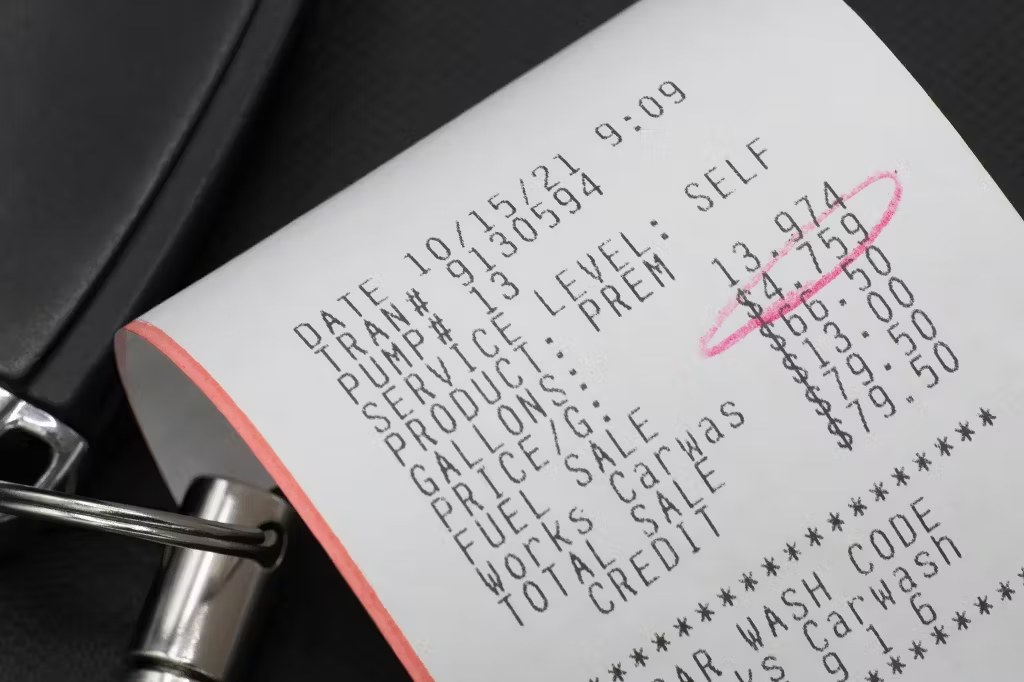Carriers Guide to IFTA Fuel Tax Requirements

Find your next load
Make more money starting now.
If you’re in the trucking business, you’ve probably heard of IFTA taxes, or are at least aware that there’s a trucking fuel tax. But you might be wondering, “Exactly what is IFTA in trucking and how does it apply to me?” IFTA compliance is extremely important, but the whole concept can be somewhat confusing. Let’s take a deep dive into IFTA trucking requirements and what they mean for carriers.
What is IFTA?
IFTA stands for International Fuel Tax Agreement. It’s an agreement between the Lower 48 states and 10 Canadian provinces that allows truckers to report and pay fuel taxes under a single license. Before IFTA, truckers had to get a separate fuel permit from each state or province. Each location set its own policies, including filing dates and reporting requirements, which often led to truckers getting bogged down in paperwork.
So how does IFTA work? Just register in your base state, and then report all of your fuel use to your state and pay the appropriate taxes. The state takes care of distributing the funds to all the other states in which you operated.
Who needs to register for IFTA?
If you operate a commercial vehicle that transports people or property across state lines, you have to register it if one or more of these apply:
- It has three or more axles.
- It has two axles and a gross vehicle weight of over 26,000 pounds.
- It’s used in a combination that weighs more than 26,000 pounds total.
Always check with your state for the latest IFTA requirements and information.
Main IFTA requirements
In order, here’s what you need to do:
- Register a base state. Your base state is the state where your business is located and your vehicle is registered. If you have vehicles registered in more than one state, talk to the local register office in each state.
- Qualified vehicle. Double-check that your vehicle meets the registration requirements detailed above. If it’s gas-powered, check with your state. Some (but not all) states require gas commercial vehicles to be registered.
- Application. You need to apply for a separate license for each qualified vehicle. Once you get your approval decals, display them on each door. You’ll need to renew annually, but the IFTA will send you renewal paperwork.
- Fuel tax reporting. You must file a fuel tax report quarterly (four times per year) that covers all of your qualified vehicles and pay the taxes you owe. Be sure to submit receipts for all tax-paid fuel you purchased. Depending on what you’ve already paid in fuel taxes, you could end up with a refund or credit rather than having to pay.
- Recordkeeping. In addition to filing quarterly reports, you are also required to keep monthly mileage and fuel records for each individual vehicle.

IFTA application and documentation requirements
You also need to file an application with your base state. Exactly which agency has jurisdiction varies by state, so it’s best to search for “IFTA application [state name]” to learn more. Usually, you can apply online. You will also need to provide specific documentation, including:
- Proof of residency. Provide proof of legal residency in the state, such as a lease or mortgage statement, along with proof that you filed your federal income taxes for the past three years.
- License plate. The vehicle must have an approved International Registration Plan license plate (also known as an apportioned plate). Renewed annually, these plates are registered in your base state and honored in all states and Canadian provinces.
- DOT number. You must have a valid United States Department of Transportation (USDOT) number, which authorizes you to haul cargo or passengers for interstate commerce.
- Owner/Officer info. Document the full names and Social Security numbers of everyone who is an owner or officer with your company.
Filing quarterly IFTA fuel tax reports
Once you know the IFTA requirements, you need to physically file your reports and calculate your taxes. Even if you’re not a math person, it’s pretty straightforward if you follow these steps.
Reporting dates
The IFTA breaks the year into four quarters. You must file a report for each quarter by the relevant deadline:
- First-quarter (January through March). April 30 deadline
- Second-quarter (April through June). July 31 deadline
- Third-quarter (July through September). October 31 deadline
- Fourth-quarter (October through December). January 31 deadline
Make sure you file on time! If you miss a deadline, you’ll have to pay penalties.
How to calculate IFTA taxes
There are six steps to calculating your IFTA taxes (Only three of them require math).
- Track mileage. First, record your odometer reading whenever you cross a state line. You can use digital tools to automatically log your drives or manually write down your odometer readings and the name of the state. Either way, you’ll use this information later to see how many miles you drove in each state.
- Retain fuel receipts. Every time you fuel up, keep the receipt. Organize your receipts by the state(s) where you bought the fuel.
- Calculate overall fuel mileage. Now you’ll need to do some simple math. Add up the total miles driven by all your vehicles and the total number of gallons of fuel you bought. Then divide: Total Miles Driven ÷ Total Gallons. The result is your overall fuel mileage.
- Calculate fuel consumption for each state. For each state, add up the total number of miles your fleet drove in that state. Divide that total by your fuel mileage: Total Miles Driven in State ÷ Overall Fuel Mileage. The result is the fuel consumed in that state. Remember you need to repeat this for every state you had trucks in during the reporting period.
- Determine taxes owed to each state. Fuel taxes vary depending on the jurisdiction and type of fuel. You can find a chart on the IFTA website, but keep in mind those figures can change up until the reporting deadline.
- Calculate your payment or refund. For each state, add up all the fuel taxes you owe (from the chart). Then add up all the fuel taxes you paid in that state (from your receipts). Finally, subtract: Fuel Taxes Owed in State – Fuel Taxes Paid in State. The difference is how much you owe (or are owed in a refund) from that state. Remember, you’ll need to do this for each state where you had vehicles on the road during the reporting period.

Failing to file IFTA reports
You must file your IFTA report and make payment on the due date. If you don’t, you will owe a late fee (varies by jurisdiction). If you don’t file within 30 days of the due date, or make payment within 90 days of the due date, you face more serious penalties. At this point, your license will be suspended and you could receive an IRS Jeopardy Assessment. You’ll need to act fast to file and pay, or you could face serious problems with the IRS.
Automate and take the stress out of IFTA reporting
IFTA reporting can be stressful and time-consuming. Fortunately, there is a better way. Truckstop’s ITS Dispatch offers a fully comprehensive IFTA reporting tool that calculates miles and gallons and sorts them by state; this tool lets drivers input data while they’re on the road. At tax time, you can produce the reports you need with just a few clicks. Don’t let IFTA reporting get the best of you, streamline it today!
FAQs

Find out how our platform gives you the visibility you need to get more done.
Get helpful content delivered to your inbox.
Schedule a demo.
Find out how our platform gives you the visibility you need to get more done.





